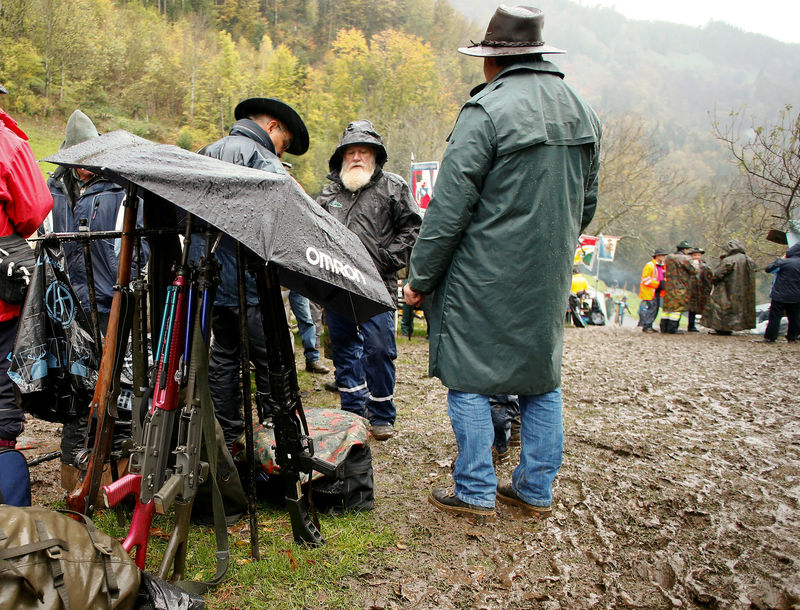
JAKARTA (Reuters) – Indonesian police appealed on Thursday for tolerance and respect for other people’s religious celebrations after an Islamist group threatened to raid businesses to check for Muslims being forced to wear Santa Claus hats or other Christmas garb.
The hardline Islamic Defenders Front (FPI) said this week it would conduct “sweeping operations” in the world’s biggest Muslim-majority country, and that forcing Muslims to wear Christmas attire was a violation of their human rights.
Indonesia is home to several religious minorities, including Christians, Hindus, Buddhists and people who follow traditional beliefs.
The constitution guarantees freedom of religion in an officially secular state though tension between followers of different faiths can flare.
“There can be no sweeping operations … members of the public should respect other religions that are carrying out celebrations,” national police chief Tito Karnavian told police during a security exercise in the capital, Jakarta.
The FPI said it aimed to enforce a fatwa, or decree, issued by Indonesia’s Islamic Clerical Council in 2016 prohibiting business owners from forcing employees to wear Christmas clothing.
“We will raid businesses in anticipation of them being stubborn about this and we will be accompanied by police,” said Novel Bakmukmin, head of the FPI’s Jakarta chapter.
Employers forcing staff to wear Christmas clothes were violating their rights.
“Businesses should be aware that there should be no forcing,” he said.
The Islamic Clerical Council’s decrees are not legally binding but serve as guidelines for Indonesian Muslims.
Christmas is widely celebrated across Indonesia and holiday decorations are ubiquitous, especially at shops, restaurants and malls where many enthusiastic workers – even Muslims – don Santa hats or elf costumes.
The FPI built its reputation with raids on restaurants and bars serving alcohol during the Muslim fasting month of Ramadan.
In recent years, it has turned its attention to Christian celebrations.
The group has also said it wants the Jakarta city government to stop sponsoring New Year celebrations, which attract many thousands of people.
About 90,000 police officers will be on duty cross the country during the end-of-year holidays, in an operation largely aimed at preventing militant attacks.
Attacks on churches in Jakarta and elsewhere on Christmas Eve in 2000, killed nearly 20 people. Ever since, authorities have stepped up security at churches and tourist spots for the holiday.
(Reporting by Djohan Widjaya and Kanupriya Kapoor; Writing by Kanupriya Kapoor; Editing by Robert Birsel)

